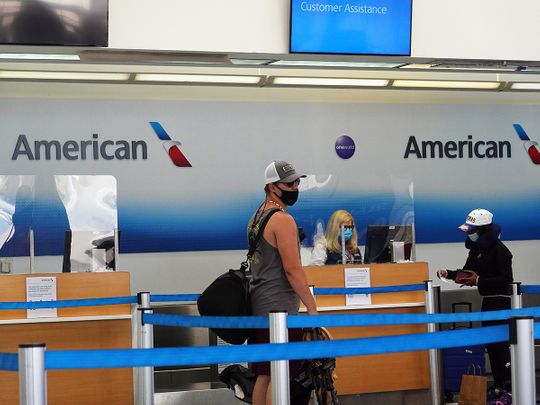
New York: Global airline passenger demand won't recover to pre-coronavirus pandemic levels until the end of 2023 - and only then if effective vaccines and medicines are available, according to Moody's.
The recovery for airlines and airports will be largely aligned, followed by aircraft lessors, as carriers return fleets to service, Moody's analysts wrote in a report. Manufacturers such as Boeing Co. and Airbus SE will be the last in the direct aviation industry to regain their 2019 footing.
Demand dropped by more than 90 per cent within weeks of the onset of the pandemic, a slump that impacted a broad swath of the global economy given that passenger airlines supported about 3 per cent of world gross domestic product in 2019, according to the report.
The development of a vaccine will be key in determining the industry's recovery, both fundamentally and financially, while more government support will probably be necessary to ensure airlines survive, Moody's said.
Only antidote for industry woes
"With an effective coronavirus vaccine likely not available before well into 2021 - and likely longer to cover potential mutations of the virus and to ensure adequate dosage supply for the masses - additional government support will be required for the airline industry if employment levels are to be maintained near already reduced levels, and potentially to stave off additional airline restructurings and insolvency proceedings," Moody's said.
There could also be changes to long-haul travel, with some carriers expanding point-to-point operations and others reverting to hub-to-hub flying, relying on code-share or joint venture partners to complete journeys.
Meanwhile, the need to reduce carbon emissions will "hold out hope" for Airbus A320neo and Boeing 737 Max deliveries, according to Moody's.








